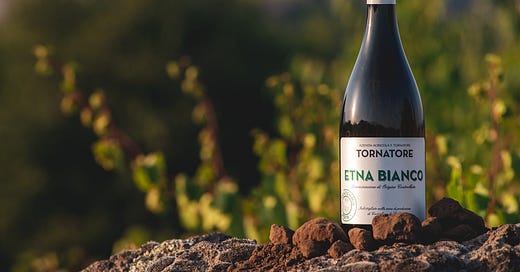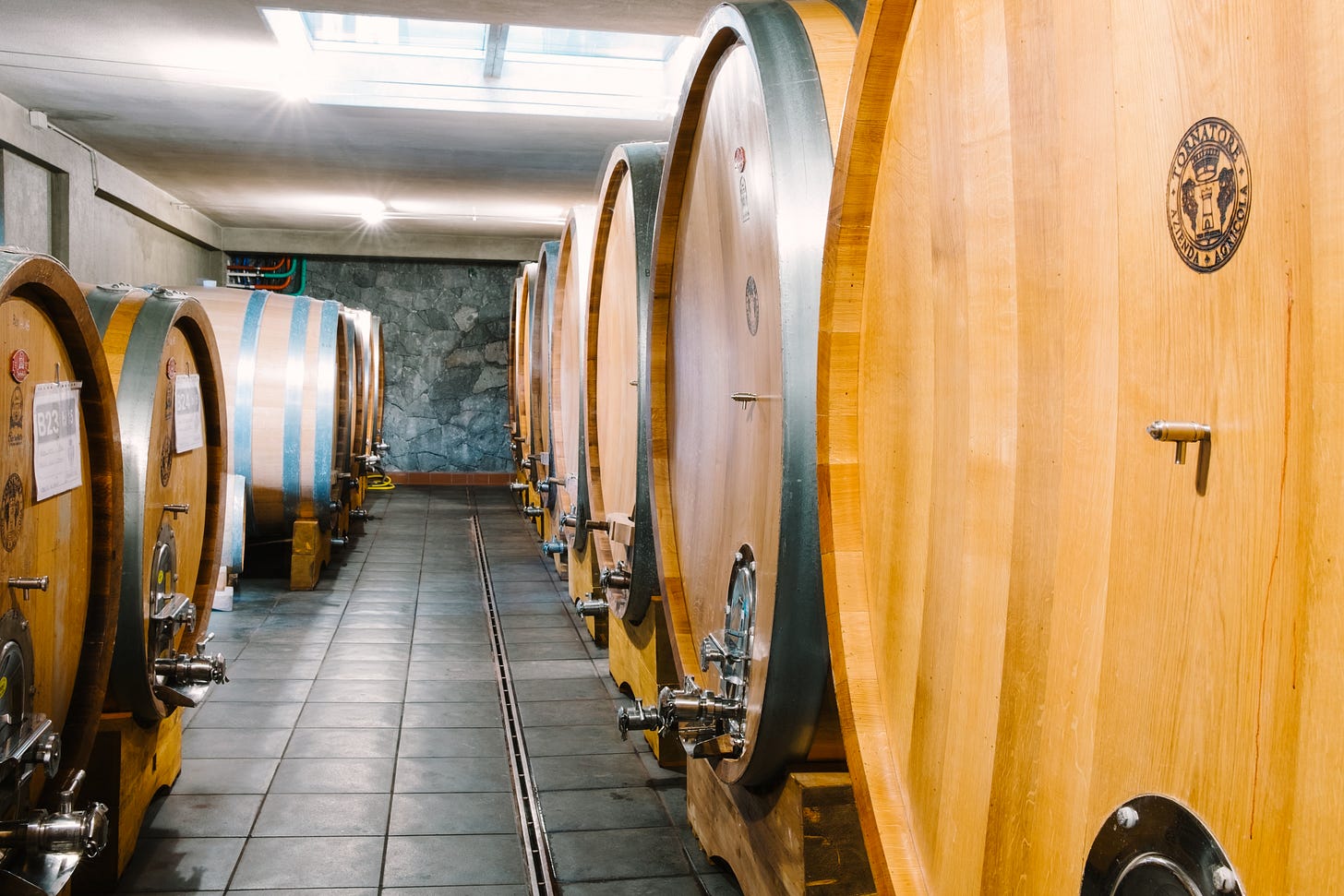Etna DOC: An Island Within an Island - A Tale of Volcanic Wines
Nestled in the heart of the Mediterranean, on the island of Sicily, lies another island within an island - Mount Etna. This majestic, active volcano is not only a UNESCO World Heritage site but also a cradle for some of the most unique and diverse wines in the world. The relationship between the winemakers of Mount Etna and the volcano is a fascinating blend of awe, respect, and an understanding of the risks involved. Living and working under the constant presence of an active volcano, these winemakers exhibit a unique bond with their environment, characterized by both reverence and resilience.
There's also a sense of wonder and appreciation for the unique benefits that the volcano provides. The mineral-rich volcanic soils contribute to the distinctive flavors of Etna DOC wines, making them highly prized. Winemakers understanding that without the volcano, their wines wouldn't possess the same character. This appreciation extends to a respect for the land and a desire to preserve its natural state, even with climate change.
The slopes of Mount Etna, with elevations ranging from 450 to 1100 meters, offer a complex geological patchwork. This is a land sculpted by the volcano's activity, where the soil is as complex as they come. From the sandy, mineral-rich lower slopes to the higher elevations with porous, volcanic soils, each part of Etna tells a different story considering all the variables.
The eastern slopes bask in the morning sun, ripening the grapes with a gentle touch, while the northern regions, with their cooler climate, produce wines with crisp acidity and aromatic complexity.
A complex blend of minerals, ash, pumice, and basalt allows for a huge range of distinct wine profiles based on both indigenous and international grapes. The volcanic soils, rich in iron and other minerals, impart a unique minerality to the wines, creating a taste that is as evocative as it is elusive. The porous nature of the volcanic soil also ensures excellent drainage, a blessing for the vines during the hot summers.
In November, the Consorzio Tutela Vini Etna DOC, armed with a thorough understanding of the region's unique characteristics and the distinct qualities of its terroir-influenced wines, officially declared its intention to attain DOCG status.
This is hardly surprising, given the unique characteristics of the ecosystem, and the terroir-driven, Indigenous grape varieties that grow there like, Nerello Mascalese, Nerello Cappuccio, Carrincante, and Catarrato to name a few – each offering diverse expressions due to site and the care of the winemakers.
Nerello Mascalese, the star of the reds, is known for its fine tannins and elegant aromas of red fruits, herbs, and a distinct minerality. Nerello Cappuccio, often playing a supporting role, adds color and body to the blends.
The white grape varieties are dominated by Carricante and Catarratto, with Carricante being a personal favorite of wine. This grape, grown exclusively in Etna, produces crisp, aromatic wines with striking acidity and complex flavors ranging from citrus to floral notes, often with an incredible mineral undertone.
While there are numerous talented, dedicated, and passionate winemakers here, I have chosen to focus on two in particular as they are as unique as the wines they produce and readily available on our market.
Frank Cornelissen
Frank Cornelissen, a visionary winemaker has carved out a unique niche in the world of viticulture with his distinctive, low-intervention approach to winemaking. Arriving at Mount Etna in 2001, Cornelissen was captivated by the imposing, snow-blanketed volcano and saw it as the perfect setting for his winemaking vision.
His philosophy centers on minimal intervention and a deep respect for nature, following an organic and biodynamic approach. Some of his wines, like the Munjebel for example , are single contrada (cru) and vintage wines, reflecting the unique terroir of Etna. He aims to produce wines that are profound and territorially authentic, achieved by maintaining low grape yields and engaging in meticulous, hands-on processes, and minimal use of sulfur.
The Munjebel 2021 is particularly notable. This is a 100% variety of Nerello Mascalese and is a celebrated wine for its unique expression of Etna terroir. $56
Notes of black cherries, raspberries, dried roses, and warm cinnamon spice. The palate is round and bright, having a crisp acidity, with soft tannins and elegant and perfumed fruit. Elegant, layered, with so much flavour and persistent minerality. Gorgeous.
Francesco Tornatore
A remarkable figure in the winemaking landscape of Etna, Francesco represents a perfect blend of tradition and innovation. Tornatore's vineyards are nestled in the northern slopes of Mount Etna, a region renowned for its unique terroir. The diverse range of microclimates, soils, and grape varieties in the contrades (vineyard parcels) like Gaglioppo, Calderara, Pietrarizzo, and Zottorinotto contribute to the intricate mosaic of flavors characteristic of Etna wines. This terroir, marked by volcanic soils and high altitudes, is the foundation upon which Tornatore's wines are crafted.
Tornatore is committed not just to producing exceptional wines but also to preserving the environment and the legacy of their land. This commitment is reflected in their investment in organic and biodynamic farming practices, minimizing chemical and synthetic fertilizer use.
The wines, each representing a distinct terroir, are a true reflection of their origins, characterized by elegance, finesse, and a unique combination of fruit, minerality, and floral notes.
Tornatore's Pietrazzio Etna Bianco 2021 is a splendid representation of the skillful vinification of Carricante grapes, grown in volcanic soils at an altitude of 650 meters. $35
The wine displays notes of pear, green apple, and citrus with excellent structure and acidity. The palate is plump yet bright, with a subtle smoky flavor mixed with fresh and dried herbs – an incredibly long and delicious finish.






